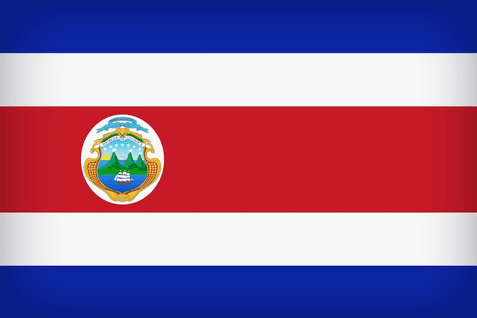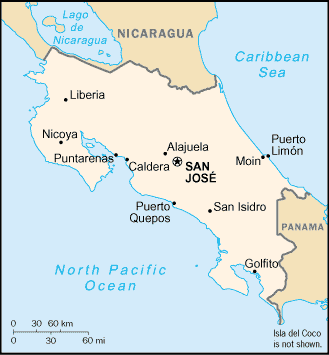Setting Up a Corporation in Costa Rica
Costa Rica offshore company formation is popular as it has earned a reputation for being an investor-friendly environment. Costa Rica does not differentiate between onshore and offshore incorporation. Sole proprietorships, stock corporations, partnerships, limited liability companies, and international business companies can all be formed by both onshore and offshore corporations. The current tax system in Costa Rica operates on a territorial basis. Companies and individuals are only taxed on what they earn within Costa Rica’s borders. While there are many legal vehicles available in Costa Rica, there are two which are seen as preferable for asset protection and financial privacy.
Costa Rica Corporation (Sociedad Anonima or “S.A.”)
The Sociedad Anonima is a form of incorporation in Costa Rica which involve significant structural flexibility. This is the most commonly used vehicle for incorporation in Costa Rica. Companies with this type of corporate structure can be identified by the initials S.A. at the end of their name. Currently, the owners of an S.A. are not required to disclose their identities or relationship with the corporation. However, starting in 2019, they are required to put their names on record in a special register designed to combat tax fraud.
Articles of Incorporation
In order to form an S.A., the articles of incorporation must be executed before a notary public. The articles of incorporation are required to be kept on file at the Mercantile Public Registry and in the notary’s book of deeds. A notice of incorporation must also be filed in the official Gazette.
Board of Directors
The positions of President, Secretary, and Treasurer are mandatory for S.A.s. These positions must be filled by three separate individuals. Additionally, two of the individuals must own shares in the company. There must also be Board of Directors with at least three members, as well as a Comptroller. Generally, the President of an S.A. will hold full power of attorney. In some circumstances, directors and other individuals may be appointed power of attorney to act individually or jointly in the interest of the company. However, the Comptroller is legally barred from having powers of attorney on behalf of the corporation.
Liability
SAs divide their capital stock into shares. In an S.A., the liability of a shareholder is limited to the value of those shares. It is required that the articles of incorporation state the nominal value, nature, and type of the shares which make up the capital stock. Common shares, preferred shares, or any other type of shares may be issued. The ownership of shares may also be transferred by endorsement.
Transferring Shares
Shares in an S.A. are represented by physical documents. More than one share can be held in a share certificate. The approval of other shareholders is not required for the transfer of shares, making S.A.s useful for those seeking to protect their assets. In order to make a transfer of shares in an S.A., a transfer contract must be signed and the share certificates must be endorsed. An entry must also be made into the company’s Shareholders Registry Book.
By-Laws and Power of Attorney
The company by-laws and power of attorney of an S.A. may be changed at any time during a shareholder meeting. These meetings can be held with all of the shareholders in attendance. Alternatively, the shareholders may send proxies to act in their stead. Special features for the protection of minorities voting rights may also be established. Whoever holds power of attorney of an S.A. in Costa Rica is liable for actions which are not in the best interest of the company or its shareholders.
Bookkeeping Requirements
Costa Rican law requires that S.A.s have three corporate books. These books are the shareholders meetings book, the shareholders registry book, and the board of directors meeting book. Additionally, they are required to have three accounting books which much be authorized by local tax authorities. The books are essential for making changes to the by-laws or power of attorney since shareholder meetings cannot be held without them.
Tax Registration Requirements
Companies which conduct business within Costa Rica’s borders must register with the tax authorities. Businesses which conduct all of their operations offshore are not required to complete a formal tax registration. They are required to complete a book registration, however. Additionally, fiscal year end declarations are mandatory even if they state that no economic activity occurred within that year. Failure to file a fiscal year end declaration will make the company subject to penalties.
Fiscal Year
The fiscal year for corporations which usually file taxes in Costa Rica is between October 1 – September 30 of each year. Filings can be made as late as December. It is possible for companies which are fully foreign-owned, or those which are branches of foreign entities to use the fiscal year of their country of registration.
Limited Liability Partnership (Sociedad de Responsabilidad Limitada)
A Sociedad de Responsabilidad Limitada or S.L.R. is a limited liability partnership where shareholders responsibilities are limited by their capital contributions. S.R.L.s are different from S.A.s because they divide their capital stock into “quotas” instead of shares.
“Quotas” instead of shares
“Quotas” cannot be transferred by endorsement. They may only be transferred by the unanimous consent of all partners involved. When transferring”quotas”, other shareholders have a first right of refusal on the shares being transferred. The other shareholders have a right to purchase the “quota” within 15 days of the sale for the same terms as the offer being refused. In order for a transfer to be considered legal, it must be recorded in the company’s “quota” holders registry. New “quota” certificates are required by Costa Rican law to be issued in order to replace the previous certificates.
Managers instead of Board of Directors
S.R.L.s are only required to be run by one manager, though more managers can be included. These managers, or assistant managers as the case may be, hold power of attorney as stipulated in the articles of incorporation. This differs from S.A.s which are run by a Board of Directors.
S.R.L.s may be more beneficial than S.A.s in situations where the investor does not want to have to name additional individuals who would make up the Board of Directors. In an S.A., the names of the Board of Directors are made public. As a result, S.R.Ls can be useful for those seeking financial privacy.
Record book requirements
The is a requirement for SRLs to keeps records of financial and legal transactions. It is required to have the company’s books authorized by the local tax authorities in Costa Rica. The record books for SRLs include the Shareholders’ Registry, Minute Books for Shareholders meetings, Journal, General Ledger, General Account, and Shareholders Registry.
Appointment of managers
The managers of an S.R.L. may or may not be partners of the company or third parties. Power of attorney can be equally held by all the managers or it can be held by a sole manager exclusively. Managers can be appointed in the articles of incorporation or at a later date. The appointment of a manager of an S.R.L. must be announced to the public in the official Gazette. It must also be recorded in the Mercantile Public Ministry. Managers can be appointed for the entire duration of the company or for a fixed period. Managers can also be reelected for fixed periods. When this happens, it is not necessary to make the announcement again. However, an announcement is required to be made for each new appointment.
Costa Rica: Country Profile
Costa Rica is located in Central America between Nicaragua and Panama. Costa Rica initially withstood colonization as a result of local resistance but was eventually colonized by Spain in 1563. The nation gained its independence in 1821. The official language of the country is Spanish. Costa Rica is a presidential republic. President Luis Guillermo Solis Rivera has been in office since May of 2014.
Considered by the World Bank to be a development success in many respects, Costa Rica has seem steady economic expansion over the past 25 years. In big part, that growth can be attributed to outward-oriented economic strategies geared towards foreign investment and trade liberalization. Costa Rica dissolved its armed forces in 1949.
Bordering both the Caribbean Sea and the North Pacific Ocean, Costa Rica is a popular destination for tourists. Its coastal plains are separated by mountains which include over 100 volcanic cones. Several of these cones are currently active volcanoes. The rich biodiversity and tropical climate makes Costa Rica a key destination for eco-tourism.
Possessing a great wealth of natural resources, Costa Rica has invested heavily in protecting its environment. Additionally, political stability, a wealth of social programs, and steady economic growth have contributed to Costa Rica being one of the nations with the lowest poverty rates in Latin America and the Caribbean.
As of July 2017, Costa Rica had a population of 4,930,258. The per capita GDP of Costa Ricans has tripled since 1960. The growth of the nation’s per capita GDP was an average of 4.5 percent between 2000 and 2013. The regional average was only 3.8 percent growth for the same years. Foreign direct investment makes up 4% of Costa Rica’s GDP.





